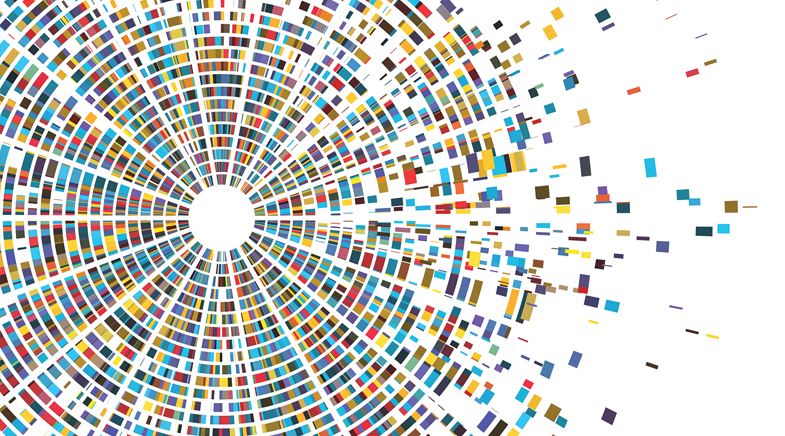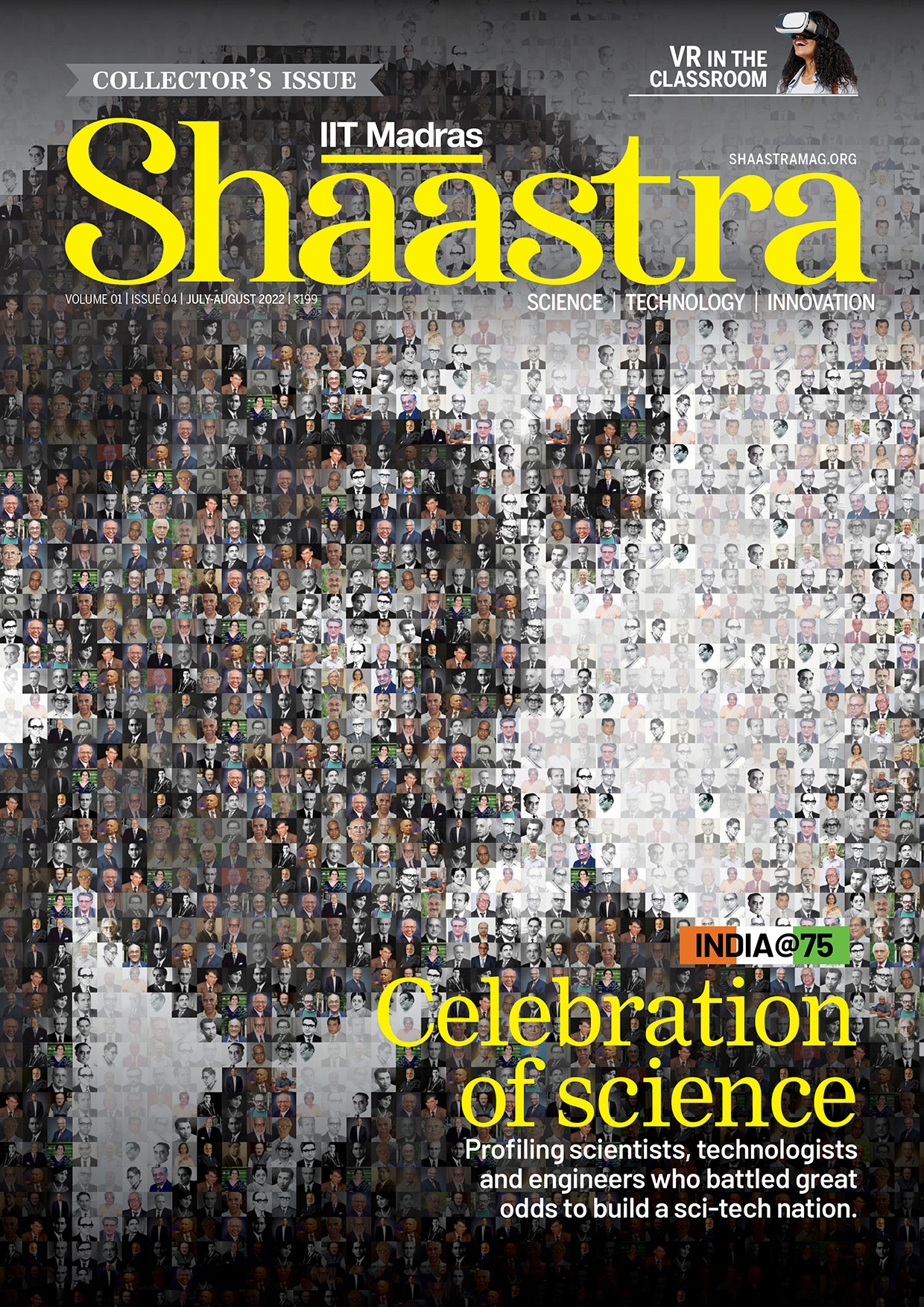Designer Genomes
-
- from Shaastra :: vol 01 issue 02 :: Mar - Apr 2022

From food to fuels to medicines, synthetic biology promises to enrich our lives.
Sukriyo Chakraborty, a bachelor's student at the Indian Institute of Science (IISc), was taking a stroll in the institute campus in 2019 when he first heard about the International Genetically Engineered Machine (iGEM) competition. Chakraborty, who had begun developing a deep interest in synthetic biology, realised that it was an opportunity not to be missed. Within a few months, he had formed a 12-member team for iGEM 2021 at IISc, called Project CellOPHane. Their goal: to reduce contamination of water from pesticides.
Begun in 2004, iGEM is a global competition in synthetic biology; it was originally intended for undergraduates, but has since expanded on either side to include high school and advanced degree students. The competition began out of a project at the Massachusetts Institute of Technology (MIT), and within a decade became a major international competition to design subsystems of living cells. The aim of the competition is to arouse students' interest in synthetic biology, and to nudge them into one of the most significant fields of research in this century. Completing an approved task in the competition brings a team a medal - bronze or silver or gold, depending on the complexity of the task. The best completed task wins a grand prize.
Chakraborty focused his project on a method to degrade organophosphates, which are major pollutants in water bodies and drinking water. Current methods to degrade them either use toxic chemicals or are not scalable. The IISc student team developed a membrane that has enzymes capable of degrading the pesticides. The enzymes were not native to bacteria; the genes to make them were transferred in the lab from another organism into bacteria, which were then coaxed to make the proteins that the students wanted. The IISc team won a gold medal at the competition last year.
Transferring genes from one organism to another uses techniques that are now well established. Working on a short-term student-level project, the IISc team could not hope to do significantly original research. But it gave them a glimpse into the complex world of synthetic biology research, a term now used for the science and engineering of redesigning organisms to do useful work for human beings. "My takeaway from the project is more on how to conduct research than the science itself," says Chakraborty. "I learned how to manage the many components that need to align to do research."
Five decades ago, biologists coined the term genetic engineering to denote the transfer of genes from one organism to another. When science moved up a few notches and the genes themselves started getting designed, they used the term synthetic biology. That term was coined a century ago by the French chemist Stéphane Leduc. Synthetic biologists now design cells with increasing precision and manipulate the outcomes carefully. "The difference between regular genetic engineering and synthetic biology is the same as the difference between a Maruti 800 and a Range Rover," says Panchapagesa Murali, founder of Jananom, a synthetic biology research services company based in Coimbatore.
PAST ISSUES - Free to Read


Have a
story idea?
Tell us.
Do you have a recent research paper or an idea for a science/technology-themed article that you'd like to tell us about?
GET IN TOUCH














